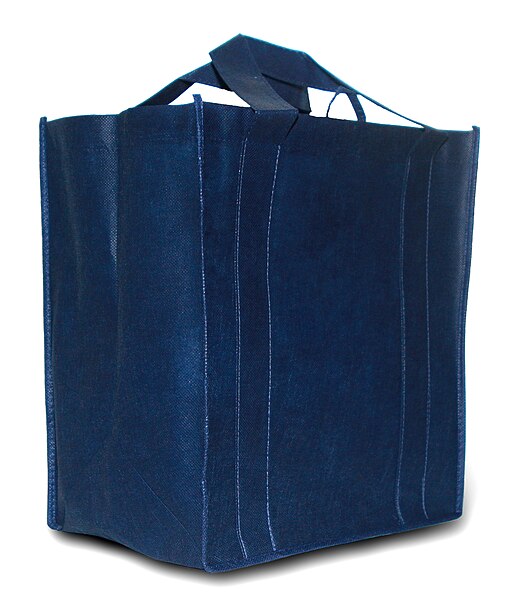Wondering what you can do to reduce your environmental impact from parenting? Here are some suggestions for easy reusable swaps to help you do just that
I have long been concerned about environmental issues and the general state of our beleaguered planet. Trying to live in a more sustainable way was one of our main reasons for becoming a full-time travel family. While we should never lose sight of the leading role that governments and large corporations must play in bringing about any essential changes, that does not mean that every individual can’t also play their part. Not only can small lifestyle changes all add up, but a widespread changing of attitudes is also required if we are ever to build a consensus for real environmental improvement.
With that in mind, I was delighted to accept this guest post submission from Emma Reed, a fellow parenting blogger, with some of her own practical suggestions for how those of us with children can all easily play our part.
Introduction
When you become a parent your whole life alters. You have a new bundle of joy to take care of, you have far more to think about and do, plus you have plenty to learn. So making reusable swaps at this time may seem as though you will be adding to your workload but, in actual fact, reusables can make life far simpler than disposables. Here are my 7 reusable swaps for parents.
#1 Reusable Nappies

Reusable nappies have made a big comeback in the last few years and some of the main reasons for this are due to our awareness of the damage that disposable nappies are causing to the environment, the fact that reusable nappies work out cheaper in the long run, the great designs that are now available, and how simple they are to use. If we compare reusable nappies to disposables, the facts are quite shocking:
- Single-use nappies are in nearly all cases made from plastic and wood pulp. Both of which are created by dirty, resource-intensive manufacturing processes. On top of this, we cut down around 7 million trees every year in the UK just to make these disposables.
- single-use baby nappies use 20 times more land for the production of raw materials and require three times more energy to make than cloth nappies.
- It takes a cup of crude oil to make just one single-use nappy.
- Washing three loads of nappies a week uses about 200 litres of water whereas manufacturing enough single-use nappies for a week uses around 1,550 litres.
- By swapping to reusables the carbon footprint of a nappy can be reduced by 40%, which is equivalent to 200kg of CO² over two and a half years.
- As disposable nappies sit in landfill they release methane gases due to human excrement which is a contributor to climate change.

Reusable nappies needn’t be daunting. They are very similar in fit to disposables, you purchase a one-sized nappy that fits from birth to potty and there are many brilliant supportive groups on Facebook, websites and blogs that can answer all of your questions.
#2 Reusable Wipes
If you make the switch to reusable nappies, it is only natural to also switch to reusable wipes. Again, the main reasons for the growing popularity in parents using these are due to the fact that most disposable wipes on the market contain plastic and aren’t always good for a baby’s skin. Just like with disposable nappies, you will also end up spending far more on disposable wipes than if you opted for reusable wipes.
However, the biggest reason for using them has to be the fact that they work brilliantly. For a normal clean up, one wipe is sufficient and even with a poo explosion, you will probably only need to use 2 at most (not like disposables where you can end up using 7!) They grip to the mess and wipe away with complete ease and once used, you simply wash them with your nappies and reuse.
#3 Reusable Breast Pads
Reusable breast pads aren’t championed enough. The disposable options have been sold as being easier and more hygienic but, having used both, I can personally say that reusable breast pads are far more comfortable, they are breathable, they do not move, they do not leave sticky marks, they are plastic-free and absorbent. They can be easily washed with yours or your baby’s clothes and they can be reused again and again, even if you choose to have more children.

#4 Muslins
Most parents will purchase muslins when they have a baby because they are the perfect reusable for so many situations – dribbling, sick, messy hands and faces etc. However, I’m not sure we use them quite enough. Disposable baby wipes seem to have taken over a lot of the jobs that a muslin can do, which seems a shame as the wipes will end up in landfill.
So, I have added this fantastic little cloth into this article to highlight the fact that we need to be using it for more clean ups and we should keep them to hand even after the baby stage. If you wanted to adapt them and keep them for reusable wipes, you could cut them into squares and even dye them to make them more interesting. Let’s not overlook the humble muslin any longer.
#5 Bamboo Toothbrushes
This is a great swap for the whole family. Bamboo toothbrushes are far more eco-friendly than your plastic ones and work in exactly the same way. The only difference is that you can compost the bamboo once the toothbrush has worn down.

#6 Reusable Shopping Bags
We are all very aware of the huge plastic waste issue our planet has. Plastic doesn’t ever go away, instead, it takes hundreds of years to breakdown and even then it leaves microplastics in the soil and oceans. Purchasing shopping bags is a very easy way of cutting down on waste. Not only are they far stronger than the supermarket plastic bags but they are also easier to carry. They can be washed, they can be used for many jobs or activities and they are so handy when you are a busy parent.

#7 Reusable Coffee Cup
New parents and that caffeine hit kinda go hand in hand, don’t they?! But rather than opting for that disposable coffee cup why not purchase a reusable one? Because you see, here in the UK, we throw away an estimated 7 million disposable coffee cups every year! Having a reusable cup to hand will allow you to make a drink at home to take out with you or you can hand this over in the coffee shop for them to fill for you. You can still enjoy your tea or coffee, while also not creating needless waste.

In Summary
Reusable honestly doesn’t have to mean difficult or more expensive. From personal experience, all of these simple swaps have made my parenting life that little bit easier, while also helping to leave a better planet for our children to grow up in.
About the Author
Emma Reed is a mother and blogger who lives in Hampshire, UK, with her husband, Rob and 2 children, Jake (7) and William (3). She began her parenting blog back in 2016 when she self-published a book on baby teething. This blog is inevitably what led her to begin living a more eco-friendly lifestyle. She now uses her platforms to show others how they can also adapt their own lives to incorporate these changes. You can read her blog at emmareed.net, or follow her on Instagram over at @emmareed_writes.
This post was featured by Twinkl in their Cost of Living Crisis blog
Like what you see? Pin it for later…







Leave a reply